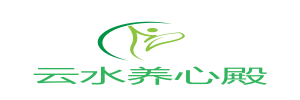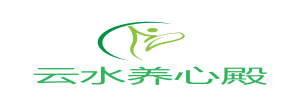
摘要:中医护理是一门古老而深入人心的医学体系,具有独特的优势和特色。本文将从四个方面详细阐述中医护理的最新技术。首先,中医护理在疾病预防和保健方面表现出色。其次,中医注重个体差异和整体观念,能够提供个性化的治疗方案。第三,中医药材和疗法丰富多样,具有广泛的应用领域。最后,中医护理强调身心平衡和精神健康,具有综合性的优势。总的来说,中医护理的独特优势和特色为现代医学提供了宝贵的经验和观点。
1、Disease Prevention and Health Maintenance
Traditional Chinese medicine (TCM) excels in disease prevention and health maintenance. TCM emphasizes the concept of holistic health and believes that the body's organs and systems are interconnected. By nurturing and harmonizing these organs and systems, TCM aims to prevent diseases before they occur. This preventive approach is achieved through various methods such as acupuncture, herbal medicine, and dietary adjustments.
Furthermore, TCM emphasizes the importance of maintaining equilibrium within the body. It believes that imbalances in the body's vital energy, known as Qi, can lead to illness. Through techniques like Chinese herbal medicine and acupuncture, TCM helps individuals restore the balance of Qi, thereby promoting overall health and well-being.
In addition, TCM recognizes that each person is unique and requires personalized treatment. This individualized approach allows TCM practitioners to address specific health concerns and tailor treatment plans accordingly. By considering factors such as the individual's constitution, lifestyle, and environmental influences, TCM provides targeted interventions that can effectively prevent diseases and promote health.
2、Abundant Variety of Medicinal Herbs and Therapies
TCM possesses a rich collection of medicinal herbs and therapies, which contribute to its diverse applications in healthcare. These herbs and therapies have been used for centuries and are derived from natural sources such as plants, minerals, and animal products. TCM practitioners combine different herbs and therapies to create customized treatments for patients.
Herbal medicine is one of the key components of TCM. It involves using specific combinations of herbs to address various health conditions. These herbs contain active compounds that can exert therapeutic effects on the body. Additionally, TCM includes therapies such as acupuncture, moxibustion, cupping, and massage, which further enhance the effectiveness of treatment.
The wide range of medicinal herbs and therapies in TCM allows for the management of various health problems, including chronic diseases, musculoskeletal disorders, respiratory conditions, and mental health issues. This versatility makes TCM a valuable addition to modern healthcare practices.
3、Emphasis on Individual Well-being and Holistic Approach
TCM places great importance on the well-being of the individual as a whole, encompassing both physical and mental aspects. Unlike Western medicine, which often focuses solely on diagnosing and treating specific symptoms or diseases, TCM takes a holistic approach that considers the interconnectedness of the body, mind, and environment.
TCM practitioners recognize that emotional factors, lifestyle choices, and social influences can have a profound impact on an individual's health. Therefore, they aim to address not only physical symptoms but also underlying imbalances and psychological aspects. This comprehensive approach helps restore balance and promotes overall well-being.
The holistic nature of TCM is particularly evident in its emphasis on mental health. TCM views emotions as an integral part of health and believes that emotional imbalances can lead to physical symptoms. Through techniques such as herbal medicine, acupuncture, and mindfulness practices, TCM can effectively manage stress, anxiety, depression, and other mental health conditions.
4、Promoting Balance and Harmony
One of the fundamental principles of TCM is the concept of balance and harmony within the body. TCM believes that the body functions optimally when all organs and systems are in a state of equilibrium. Any disruption or stagnation of Qi can lead to health problems.
To restore balance and harmony, TCM utilizes various techniques, including acupuncture, herbal medicine, dietary adjustments, and lifestyle modifications. These interventions help regulate Qi flow, remove blockages, and promote the body's natural healing abilities.
Furthermore, TCM recognizes the influence of external factors on health, such as seasonal changes, environmental conditions, and lifestyle choices. By adapting treatment plans according to these factors, TCM aims to restore balance and maintain optimal health throughout different stages of life.
Conclusion:
In conclusion, traditional Chinese medicine (TCM) offers unique advantages and characteristics in healthcare. Its emphasis on disease prevention, individualized treatment, abundant variety of medicinal herbs and therapies, holistic approach, and promotion of balance and harmony contribute to its effectiveness. The valuable insights and practices of TCM can greatly complement modern medical approaches and provide a comprehensive perspective on health and well-being.

